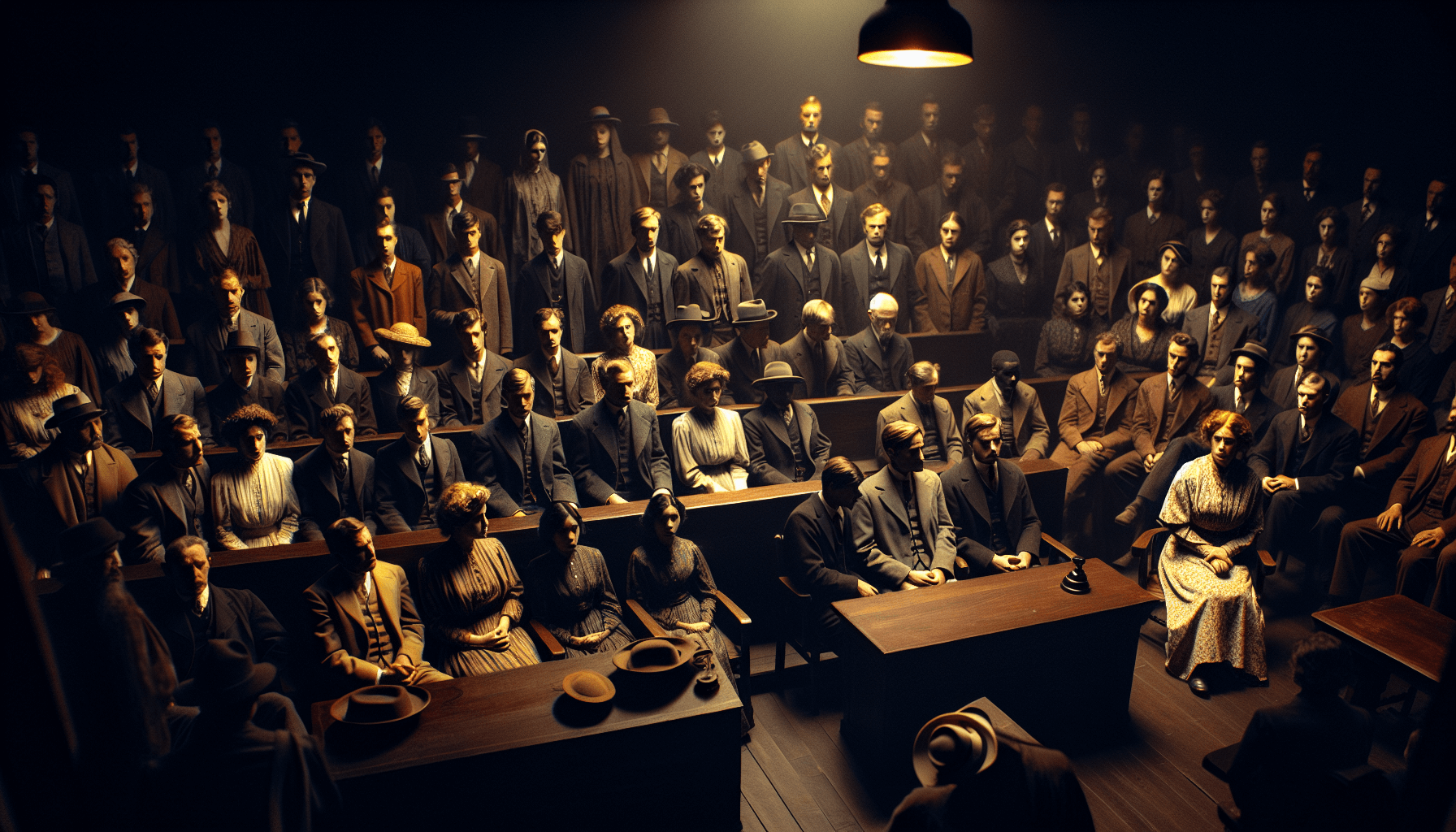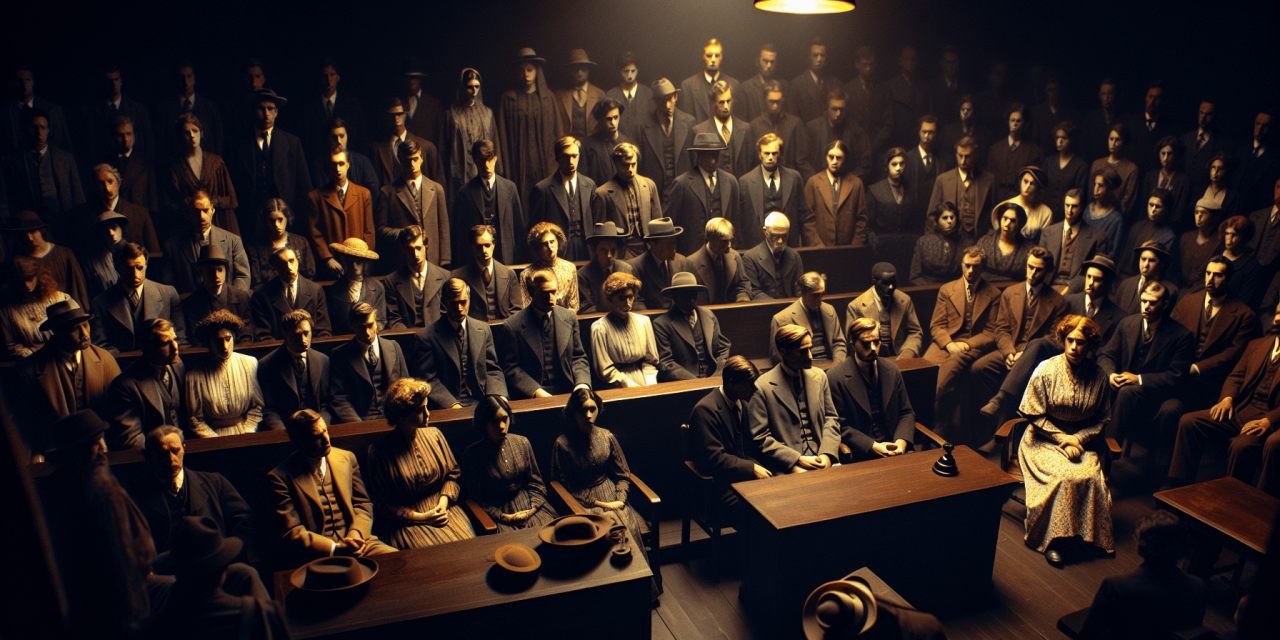On August 25, 1913, the air in Atlanta, Georgia, is thick with tension as a jury convicts Leo Frank, a Jewish-American superintendent, of murdering 13-year-old Mary Phagan. Her lifeless body had been discovered months earlier in the basement of the National Pencil Company, sparking a sensational trial fraught with antisemitism. The evidence is weak, the testimonies conflicting, yet the verdict is damning. Frank is sentenced to hang, a decision that will echo through history with chilling consequences.

As the trial unfolds, the courtroom becomes a theater of prejudice and fear. The media fans the flames, painting Frank as a villain in a story where facts are overshadowed by bias. Georgia’s governor later intervenes, commuting Frank’s sentence to life imprisonment, a move that ignites fury among those who demand blood for Phagan’s death. The state’s failure to protect Frank culminates in a horrifying act of mob justice.
In 1915, a lynch mob abducts Frank from his prison farm, delivering their own brand of justice. Decades later, the Georgia State Board of Pardons and Paroles grants him a posthumous pardon, not to declare innocence, but to acknowledge the state’s grave failure. The case remains a haunting reminder of justice corrupted by hatred.
Story Source: Documentary film titled “The People v. Leo Frank” (2009, directed by Ben Loeterman)





